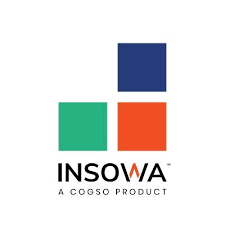Description

ABS

Enlite POS
Comprehensive Overview: ABS vs Enlite POS
ABS and Enlite POS are two distinct point-of-sale (POS) systems designed to meet the needs of various business types. Here's a comprehensive overview of their primary functions, target markets, market position, user base, and key differentiating factors:
a) Primary Functions and Target Markets
ABS POS:
-
Primary Functions:
- Inventory Management: ABS offers robust inventory tracking to manage stock levels efficiently.
- Sales Reporting: Provides detailed sales reports and analytics to help businesses track performance.
- Customer Management: Includes features for maintaining customer databases, loyalty programs, and managing customer interactions.
- Payment Processing: Integrates with various payment gateways to process different types of transactions.
-
Target Markets:
- Retail: ABS is primarily designed for retail environments where inventory management and customer interactions are crucial.
- Small to Medium Enterprises (SMEs): It serves small to medium businesses requiring a comprehensive but user-friendly POS system.
- Restaurants and Cafes: Offers features specific to the food and beverage industry, like table management and split billing.
Enlite POS:
-
Primary Functions:
- Cloud-Based Operations: Enlite offers cloud-based POS solutions, ensuring data accessibility from anywhere.
- User-Friendly Interface: Designed to be intuitive and easily navigable for quick adoption by staff.
- Customization: Highly customizable to suit specific business needs with different modules.
- Advanced Analytical Tools: Provides enhanced analytics and business intelligence to optimize operations.
-
Target Markets:
- Hospitality Industry: Focuses heavily on hotels, restaurants, and cafes that need integrated management systems.
- Multi-location Businesses: Suitable for businesses with multiple locations that require centralized control.
- Large Enterprises: Caters to larger businesses needing scalable solutions with advanced functionalities.
b) Market Share and User Base
-
ABS POS:
- Generally has a strong presence in the SME retail market due to its cost-effectiveness and specialized retail features.
- User base consists predominantly of small independent retail stores and local franchises.
-
Enlite POS:
- Targets larger enterprises and is positioned well in the hospitality market, enjoying significant adoption in this sector.
- Its cloud-based architecture appeals to modern businesses looking for flexibility and scalability.
- Often preferred by enterprises operating in multiple locations due to its central management capabilities.
c) Key Differentiating Factors
-
ABS POS:
- Simplicity and ease of use for small businesses.
- Cost-effective pricing model appealing to startups and smaller retailers.
- Strong offline capabilities, ensuring operations are not hindered by internet outages.
-
Enlite POS:
- Advanced technology stack with cloud-based architecture allows for remote management and real-time data access.
- Greater emphasis on customization and modular options, catering to specific business needs and workflows.
- Superior analytical tools and reporting capabilities, supporting data-driven decision-making for larger operations.
In summary, ABS and Enlite POS cater to different segments within the market. ABS is tailored more towards small to medium retailers looking for straightforward, reliable POS functionality. In contrast, Enlite POS is designed for larger enterprises and businesses with multiple locations, especially within the hospitality sector, offering more advanced and customizable solutions.
Contact Info

Year founded :
Not Available
Not Available
Not Available
Syria
Not Available

Year founded :
Not Available
+1 404-996-0336
Not Available
Not Available
Not Available
Feature Similarity Breakdown: ABS, Enlite POS
To provide a feature similarity breakdown for ABS and Enlite POS, it's important to analyze their offerings in the realm of point-of-sale (POS) systems. Please note that my comparison is based on typical features found in POS systems, as specific details about these products might not be fully available or may have changed since my last update. Here's a general breakdown:
a) Core Features in Common
-
Sales Processing:
- Both ABS and Enlite POS likely offer functionality to handle various sales transactions, including cash, credit, and mobile payment processing.
-
Inventory Management:
- Basic inventory tracking features, enabling businesses to monitor stock levels and get alerts for low-stock items.
-
Customer Management:
- Basic CRM functionalities, such as tracking customer purchases and storing customer information.
-
Reporting and Analytics:
- Generation of sales reports, daily summaries, and performance analytics to offer insights into business operations.
-
Integration Capabilities:
- Ability to integrate with other business systems like accounting software, eCommerce platforms, or loyalty programs.
-
User Management:
- Tools to manage employee access, shift schedules, and track employee performance.
b) User Interface Comparison
-
Design and Usability:
- Both systems are likely designed with ease of use in mind, offering intuitive interfaces suitable for staff with varying levels of technical proficiency.
-
Customization:
- The extent to which each interface can be customized may vary; some POS systems allow for layout changes and custom workflows to better suit specific business needs.
-
Responsive Design:
- Modern POS systems often offer responsive interfaces that work across various devices such as tablets, desktops, and smartphones.
c) Unique Features
- ABS:
- Without specific information, if ABS is known for any patented or proprietary technology or integrations, this would set it apart. For example, specialized hardware integration or tailor-made solutions for a particular industry.
- Enlite POS:
- Enlite POS may differentiate itself with unique features like advanced cloud functionality, AI-driven analytics, or particular integrations (e.g., unique partnerships with other apps or services).
When evaluating POS systems like ABS and Enlite POS, businesses should consider not only core functionalities but also scalability, cost, customer support, and the specific unique features that align with their business needs. Always consult the latest documentation or product websites for the most current information, as features can change with new updates and releases.
Features

User Onboarding
Customer Support
Customization
Integration
Data Security

Product Management
Customer Management
User-Friendly Interface
Sales Reporting
Integration Capabilities
Best Fit Use Cases: ABS, Enlite POS
To provide a detailed overview, let's first consider the characteristics and typical use cases for ABS and Enlite POS, then discuss how they cater to different industry verticals or company sizes.
ABS (Automated Business Systems)
a) Best Fit Use Cases for ABS:
-
Midsize to Large Enterprises:
- ABS is ideal for businesses with complex operations that require integrated systems across multiple departments, such as finance, inventory management, and customer relationship management.
- Industries such as manufacturing, wholesale distribution, and logistics often benefit from ABS solutions due to their need for efficient, scalable systems that can handle large volumes of transactions and data.
-
Project Management-Intensive Businesses:
- Companies involved in construction, engineering, or other project-driven endeavors may prefer ABS for its capability to streamline project workflows and resource management, providing detailed reporting and real-time tracking.
-
Industries with Compliance Needs:
- Sectors that face stringent regulatory requirements, like healthcare and pharmaceuticals, where maintaining compliance and auditing trails is crucial, may benefit from ABS’s robust reporting and documentation features.
d) Catering to Different Industry Verticals or Company Sizes:
- Industry Focus: ABS can be customized to meet specific industry requirements, offering modules tailored for sectors such as retail, construction, and finance. This adaptability makes it suitable for businesses needing deep industry integration.
- Company Size: Best suited for midsize to large companies due to its ability to handle complex operations and multi-departmental integration. ABS solutions typically require significant investment and implementation resources that are more feasible for larger enterprises.
Enlite POS
b) Preferred Scenarios for Enlite POS:
-
Small to Medium-Sized Retail Businesses:
- Enlite POS is designed to be user-friendly and cost-effective, making it suitable for small to medium-sized retail stores, restaurants, and cafes that need an efficient point-of-sale system to manage daily transactions and inventory tracking.
-
Quick Service and Multi-Location Management:
- Perfect for quick-service businesses that require a fast, reliable POS solution to handle high-volume transactions efficiently. Multi-location businesses can benefit from centralized management features, enabling real-time oversight of sales across locations.
-
Businesses Needing Mobile Solutions:
- Ideal for businesses that require mobility, such as food trucks, pop-up shops, or outdoor vendors. Enlite POS often offers mobile capabilities, allowing sales transactions to be processed anywhere, enhancing flexibility.
d) Catering to Different Industry Verticals or Company Sizes:
- Industry Focus: While Enlite POS is versatile enough for various small to medium business environments, it is particularly suited for retail and hospitality sectors, offering specialized functionalities like table management for restaurants.
- Company Size: Primarily geared towards small to medium-sized companies, Enlite POS is scalable yet simple enough for businesses with limited technical resources or IT staff. Its ease of setup and training makes it attractive to businesses looking to minimize downtime.
In summary, ABS is an excellent choice for larger enterprises requiring extensive system integration and project management capabilities, whereas Enlite POS is better for small to medium businesses in the retail and hospitality sectors needing a straightforward, efficient point-of-sale solution. Both cater to their respective target audiences with specific industry verticals and company size needs in mind.
Pricing

Pricing Not Available

Pricing Not Available
Metrics History
Metrics History
Comparing undefined across companies
Conclusion & Final Verdict: ABS vs Enlite POS
To provide a conclusion and final verdict on ABS and Enlite POS, it's important to analyze various crucial aspects such as cost, features, usability, customer support, and scalability. Here's a comprehensive breakdown:
Conclusion and Final Verdict
a) Which Product Offers the Best Overall Value?
Enlite POS is the generally better choice when considering overall value, especially for small to medium-sized businesses looking for a cost-effective solution with strong features and excellent customer support. However, the best choice ultimately depends on your specific business needs.
b) Pros and Cons of Choosing Each Product
ABS (Advanced Business Solutions) POS
-
Pros:
- Comprehensive Features: Offers a robust set of features tailored for large enterprises, including inventory management, customer relationship management, and advanced reporting capabilities.
- Customization: Highly customizable to suit unique business processes and workflows.
- Integration: Supports integration with various enterprise-level applications and systems.
-
Cons:
- Cost: Generally more expensive, with higher initial setup and ongoing maintenance costs.
- Complexity: May have a steeper learning curve, requiring more intensive training for staff.
- Support Accessibility: While support is available, it may not be as responsive or accessible as Enlite POS, depending on the user's location or service level agreements.
Enlite POS
-
Pros:
- Affordability: Usually more cost-effective, with lower upfront costs and flexible pricing plans.
- User-Friendly: Designed with ease of use in mind, making it easier for staff to learn and operate.
- Support: Known for excellent customer support, offering quick response times and resources like tutorials and help centers.
- Cloud-Based: Often has cloud capabilities, making it accessible from anywhere, which is critical for businesses with multiple locations or remote management needs.
-
Cons:
- Limited Customization: Might not offer the same level of customization as ABS in terms of complex feature requirements.
- Scalability: While it works well for small to medium-sized businesses, it might not scale as efficiently for very large enterprises with more complex needs.
c) Recommendations for Users Deciding Between ABS vs Enlite POS
-
Assess Your Business Size and Needs: Larger enterprises with complex operational requirements and a bigger budget might benefit more from ABS due to its extensive features and customization options. In contrast, small to medium-sized businesses might find Enlite POS more fitting, given its affordability and user-friendly design.
-
Consider Your Budget: Evaluate both the short-term and long-term costs associated with each system, including setup, training, maintenance, and subscription fees. Enlite POS generally offers better upfront cost savings.
-
Scalability and Growth: If you anticipate rapid growth or plan to expand your operations significantly, consider the scalability of the options. While Enlite POS may initially be more suitable, ABS might prove beneficial as your business scales.
-
Evaluate Support and Training Needs: If easy access to reliable customer support is a priority, Enlite POS has a reputation for quality support that can be pivotal during the transition.
-
Test Through Demos: Utilize free trials or demo versions to get hands-on experience with both systems to better understand which one aligns with your operational style and comfort level.
Overall, the decision should be based on a comprehensive analysis of current needs, future growth potential, and budget constraints. Both systems have their strengths, so aligning them with your business goals is essential.
Add to compare
Add similar companies



